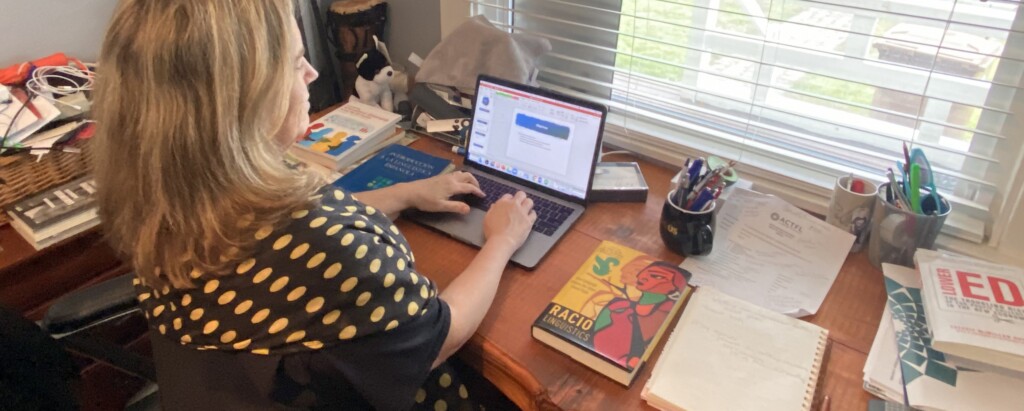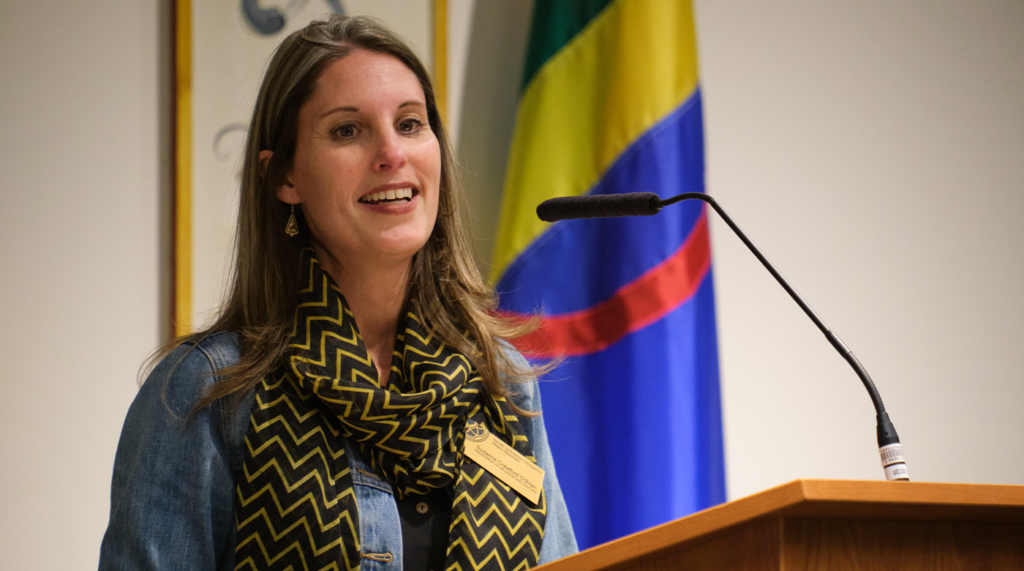Page 21 • (229 results in 0.062 seconds)
-

onto the screen was interesting to me.” Ronquillo learned a lot from his professors, including Jeff Caley, assistant professor of computer science. He took a few classes from Caley, including Computer Organization, Operating Systems and his capstone. “Adrian is a great student; he’s like the absolute dream student,” Caley said. “What really set Adrian apart was how hard he worked.” Caley witnessed Ronquillo’s diligence with his assignments, with the student oftentimes working ahead to get his work
-

skill for critical thinking, never loses value. School systems will always need high-quality, passionate teachers. Compassion, empathy, communication, and respect are life skills that are learned early on in homes and classrooms. As America’s classrooms become more and more diverse, there is a growing need for teachers who are willing to navigate the cultural and social complexity of the diverse classroom. You can develop the skills needed to positively impact the education system by getting a
-

computer and typing stuff out and seeing it rendered onto the screen was interesting to me.” Ronquillo learned a lot from his professors, including Jeff Caley, assistant professor of computer science. He took a few classes from Caley, including Computer Organization, Operating Systems and his capstone. “Adrian is a great student; he’s like the absolute dream student,” Caley said. “What really set Adrian apart was how hard he worked.” Ronquillo sought help from his friend and fellow computer science
-

beyond their assumptions. When Heath was designing the class back in 2016, he asked people what they thought were the most damaging things humans were doing and how they would redesign those systems. “I noticed people would get stuck on the fact that ‘This is just the way it is,’ ” Heath says. “The starship, and getting students to believe they are designing it, is essentially a trick to get them out of that box of ‘This is how things are.’” “(The goal is) to get students to really see some of the
-

students while maximizing the learning experience, the importance of understanding and flexibility when it comes to the challenges students are working through, and the support systems faculty have put in place to stay connected.PLU: What’s the adjustment period been like for you and other faculty transitioning to this distance-learning approach? Yaden: As director of the Language Resource Center since 1996, and before that as a teaching assistant in graduate school, I’ve been fortunate to make
-

applied field research. It helps our students become systems thinkers, to understand that a single issue or problem can—and must—be seen from a variety of perspectives. It challenges students to understand the complexity inherent in human relationships with places, and how we need to work with all the living communities of that place—plant and animal and mineral as well as human—in our restoration efforts.Let's keep the conversation going! Read the additional Bjug Day Q&A's Bjug Day Q&A
-

the computer and typing stuff out and seeing it rendered onto the screen was interesting to me.” Ronquillo learned a lot from his professors, including Jeff Caley, assistant professor of computer science. He took a few classes from Caley, including Computer Organization, Operating Systems and his capstone. “Adrian is a great student; he’s like the absolute dream student,” Caley said. “What really set Adrian apart was how hard he worked.” Caley witnessed Ronquillo’s diligence with his assignments
-

of class, Heath’s goal is to convince students that they are actually building a starship. It’s the most important part of the course because the starship concept forces students to think beyond their assumptions. When Heath was designing the class back in 2016, he asked people what they thought were the most damaging things humans were doing and how they would redesign those systems. “I noticed people would get stuck on the fact that ‘This is just the way it is,’ ” Heath says. “The starship, and
-
. New York: Grove Press, 2020. “[This] is the unforgettable life story of a man who served more than four decades in solitary confinement–in a 6-foot by 9-foot cell, 23 hours a day, in notorious Angola prison in Louisiana–for a crime he did not commit. That Albert Woodfox . . . was able to emerge from his odyssey within America’s prison and judicial systems with his humanity and sense of hope for the future intact is a triumph of the human spirit, and makes his book a clarion call to reform the
-

systems and relationships where everyone can thrive and offers a network of advocacy resources, including a (very comfy) community gathering space, facilitating identity programs and communities, hosting a variety of events and celebrations and providing students vital leadership opportunities. 9. Take care of your emotional/spiritual self Taking care of your mental health means taking care of your emotional health, too. And for some people, an important part of mental and emotional health includes
Do you have any feedback for us? If so, feel free to use our Feedback Form.


